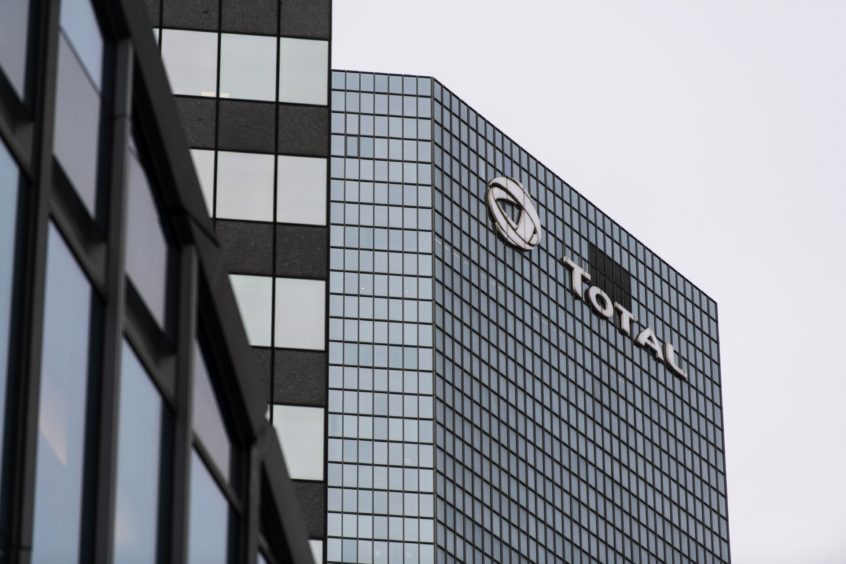
Total SE has had the fastest start in the race between oil supermajors to achieve net zero carbon emissions.
Europe’s three largest oil and gas companies — Total, BP Plc and Royal Dutch Shell Plc — all announced plans last year to eliminate most greenhouse gas emissions from their operations and the fuels they sell in the coming decades. It marked a turning point for the petroleum industry in the region, and heightened its divergence from US majors that have yet to make such pledges.
While Total was the last one to announce the net zero shift, it has since covered the most ground. The French company has acquired the most renewable electricity for its portfolio — about 8.8 gigawatts in operation, construction or development — through acquisitions such as its $2.5 billion deal with Indian renewable firm Adani Green Energy Ltd., according to data compiled by Bloomberg.
“Total has been a relative early mover among oil majors in preparing for the energy transition,” said Bloomberg Intelligence analyst Will Hares. “It holds the most renewable-power capacity installed or in development of any oil major, and the most ambitious capacity-growth targets.”
The French company also has the highest overall Carbon Transition Score of any integrated oil company in Bloomberg Intelligence’s rankings. Total has a rating of 9.33 out of 10, compared with 8.4 for BP and 6.6 for Shell.
BP, which was the first of the three companies to offer a net zero target in February 2020, has bought into 2.2 gigawatts of offshore wind power in development in a $1.1 billion deal with Equinor ASA. The London-based company also has an established 16-gigawatt portfolio of solar projects in operation or development through the Lightsource BP, which was formed in 2017.
Shell is the only member of the trio not to have made a multibillion-dollar clean-energy deal since announcing its net zero target in April. The Anglo-Dutch company has made smaller investments from hydrogen refueling infrastructure in California to a waste-to-fuels plant in Canada.
All three companies have announced numerous smaller deals for which they didn’t disclose a value, ranging from electric car charging networks to producers of biogas.
Pledges for lots of upfront spending on clean energy capacity has been met with skepticism by some investors, who worry that returns from renewables won’t match those of oil and gas projects do. Even Total’s own Chief Executive Officer Patrick Pouyanne warned of a “bubble” in renewables if there is too much money chasing too few low-carbon projects.
